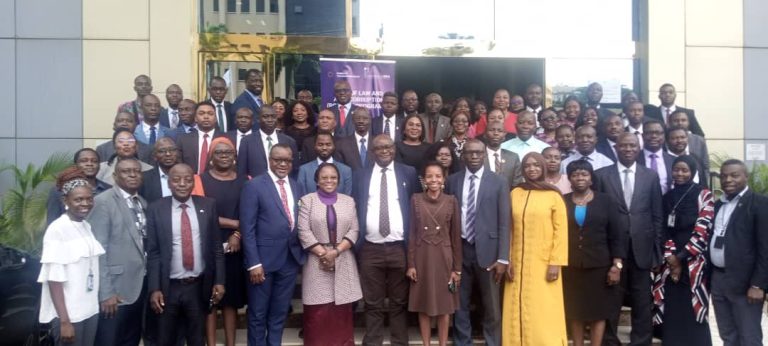The Independent Corrupt Practices and other Related Offences Commission (ICPC)), following the development of its organizational strategic action plan for 2024-2028.
The commission said it intends to capitalize on the gains of its previous strategic plan to improve monitoring, evaluation and performance reporting while fulfilling its mandate.
Demola Bakare, spokesperson of the commission, who revealed this on the sidelines of a senior management retreat for board and senior management staff of the commission, organized by the Rule of Law and Anti-Corruption (RoLAC) programme, said while the commission is saddled with the responsibility of checking corruption, monitoring performance is an important component of its new strategic action plan.
This, he says, is the reason why the commission is open to reinforcing the capacity of its senior management team to further strengthen its oversight and administrative role in the commission’s activities.
- Tinubu’s 4 concurrent budgets recipe for chaos – Obi
- UNILORIN students lament acute water shortage, blackout
“It’s about monitoring our activities; investigation, prosecution, public enlightenment, system study and review, monitoring our activities so that we are able to deliver what we promised in our strategic action plan the way that we have promised it.”
“In the last strategic action plan, we had just 3vstrategic objectives. We had further split some that were cumbersome. So Clearly now, the 5 strategic objectives identified(in the new strategic plan) belongs to a particular department to implement.
“It is clearer to everybody who has the responsibility to implement a particular strategic objective at ICPC and that gives us a better handle to implement the strategic action plan to better monitor it and to better evaluate it for better performance.
“We are strategising to be able to deliver what we promised Nigerians in the most efficient and effective way.
One of the facilitators, Odey Joshua, who is also the monitoring and evaluation officer of the Rule of Law and Anti-Corruption programme (RoLAC), stressed the importance of supporting anticorruption agencies to perform its functions.
Odey said it is necessary due to the complexity of fighting corruption, especially with the advent of technology.
“The capacity of the institution to be able to live to their institutional framework and mandate is very important, it is key. For us it is also one of those things that we are focusing on to be able to bring them up to the standards to fight.”
“Corruption is very complex, and of course with technology now it has reach a very high stage such that without this capacity, continuous training, they won’t be able to fight corruption (effectively).”

 Join Daily Trust WhatsApp Community For Quick Access To News and Happenings Around You.
Join Daily Trust WhatsApp Community For Quick Access To News and Happenings Around You.


